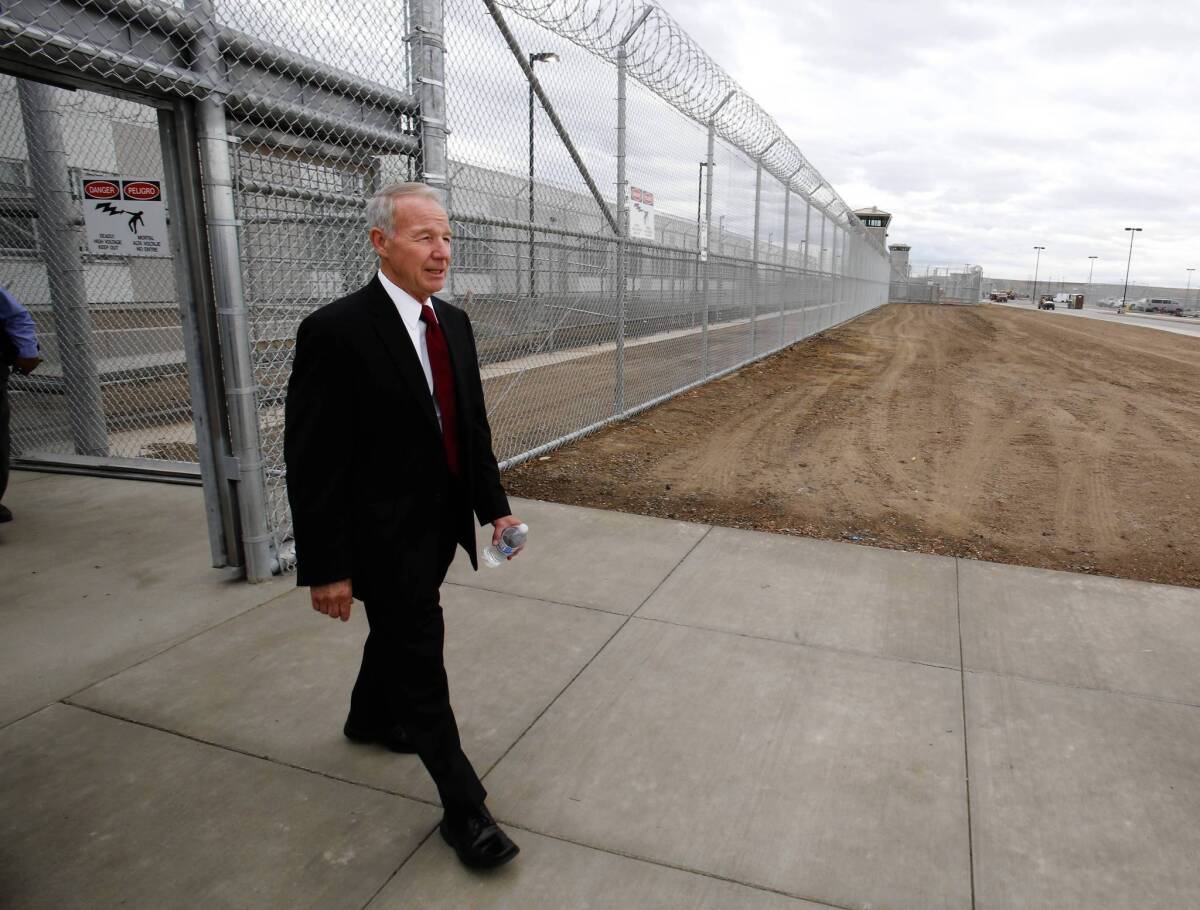Letters: The hunger strikers’ humanity

- Share via
Re “Hungry for control,” Opinion, Aug. 6
Jeffrey Beard, head of the California Department of Corrections and Rehabilitation, does a masterful job of presenting a narrow view of the issues underlying the current hunger strike in California prisons.
He avoids the broader issue of the many thousands of persons held in some form of solitary confinement in California, a practice that is widely held to be torture, and describes conditions in the Security Housing Units, or SHUs, quite at odds with those observed by attorneys and human rights activists.
Juan Mendez, the U.N. special rapporteur for torture, has stated that solitary confinement beyond 15 days should be absolutely prohibited. In California prisons, the average length of time in SHU is more than six years.
As a human rights activist and person of faith, I along with many others recognize that the core demands of the hunger strikers are consistent with human rights standards and especially with deeply held religious values.
Virginia Classick
Woodland Hills
Judges and juries have determined that these inmates serve time in prison, but the Department of Corrections and Rehabilitation disregards those verdicts when it subjects them to inhumane conditions. The prisoners have nonviolently protested on behalf of their own safety and dignity, but officials have decided effectively to punish them more.
This collective punishment and the use of solitary confinement do not promote corrections or rehabilitation.
Rachel Werther
Seattle
ALSO:
Letters: Re-working No Child Left Behind
Letters: More money for the middle class
Letters: How the terrorists have changed us
More to Read
A cure for the common opinion
Get thought-provoking perspectives with our weekly newsletter.
You may occasionally receive promotional content from the Los Angeles Times.









